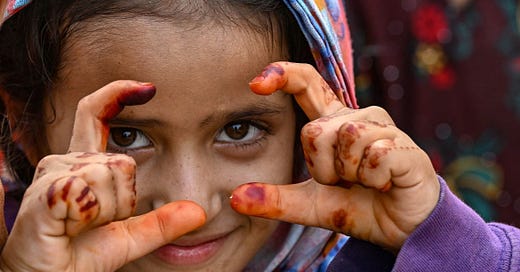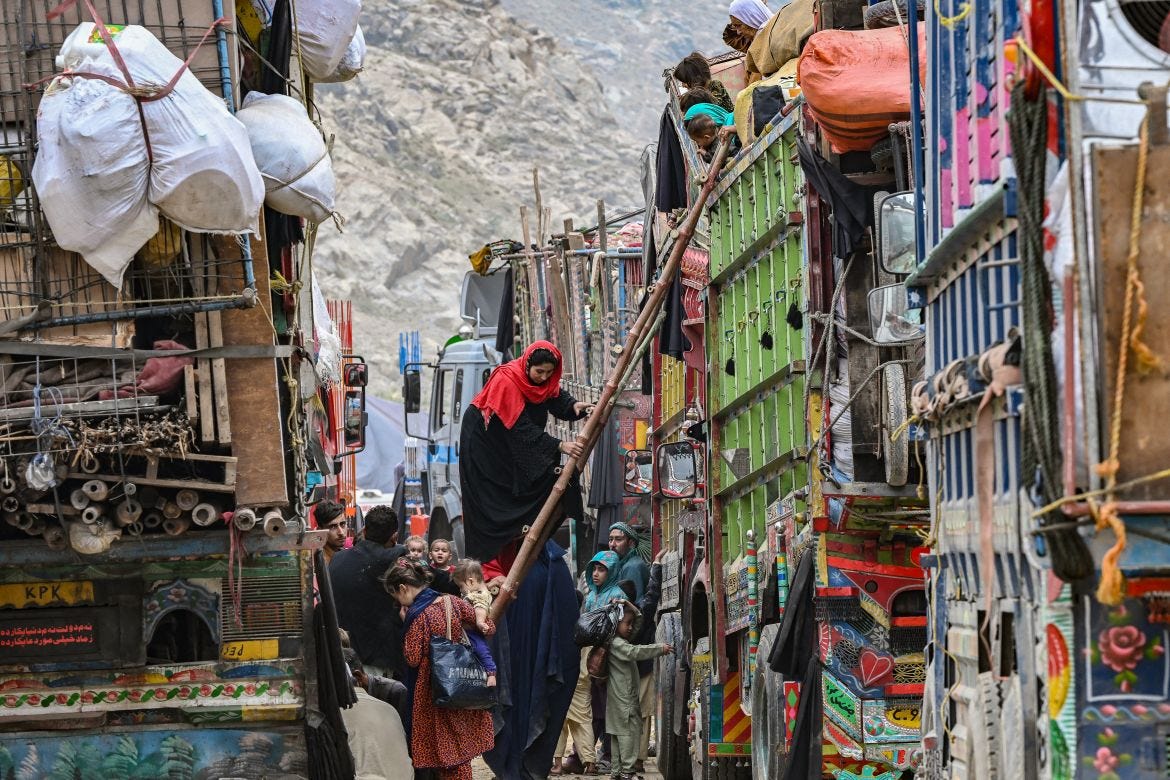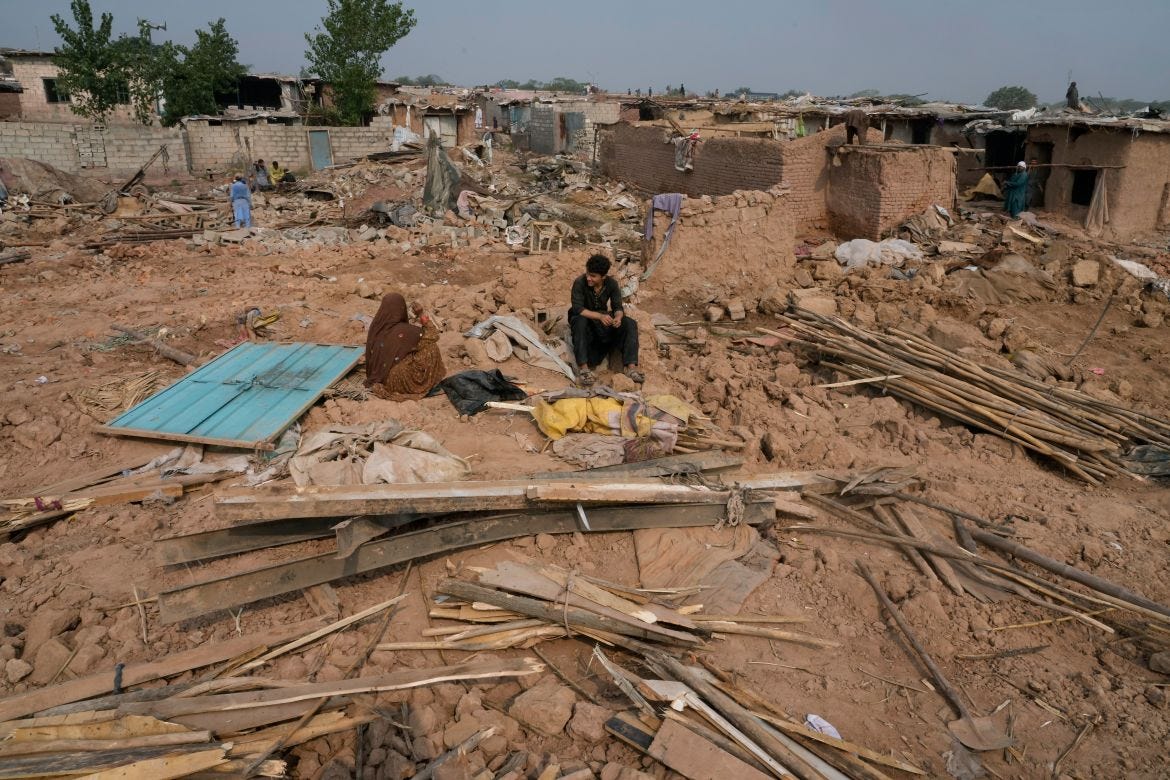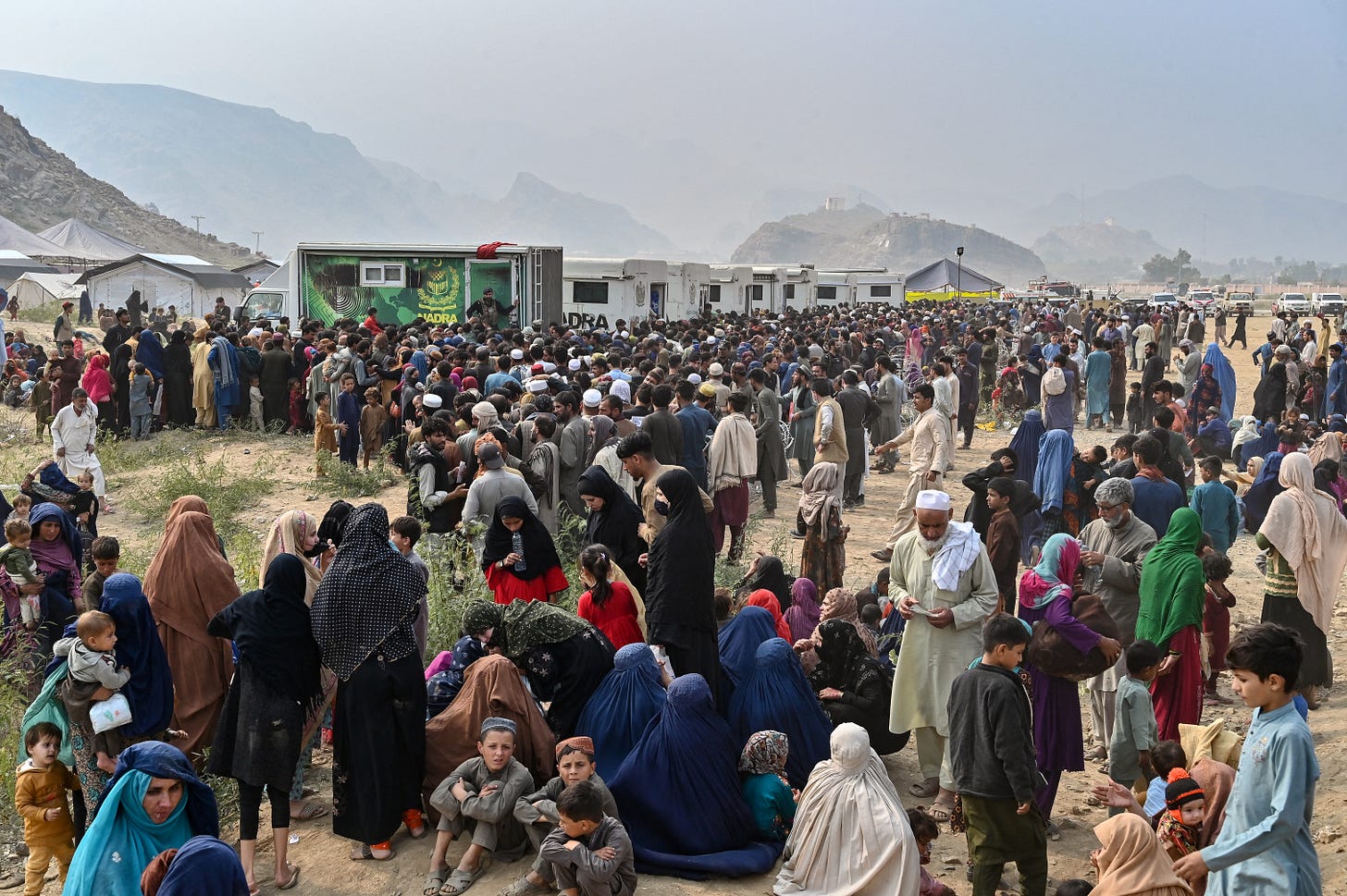Pakistan Displaces, Deports Afghan Refugees to Devastation and maybe Death
The Forgotten and "Unnoticed" Exodus: Afghan Refugees in Pakistan Being Hounded and Herded Back to tthe Taliban-ruled Afghanistan.
Forgotten and "Unnoticed" Exodus: Global Spotlight vs. The Afghan Refugees
In a world incessantly beset by images of violence and upheaval, the plight of Afghan refugees in Pakistan is a sobering testament to the uneven distribution of global attention. As international news cycles fixate on the relentless Israeli-Palestinian conflict—marked by the tragic spectacle of bombings in Gaza and Hamas-led incursions into Israel—the Afghan crisis simmers quietly in the background. Elsewhere, the horrors of the Russian assault on Ukraine monopolize discussions, while the persecution of Uyghur Muslims in China and the tragic expulsion of Rohingya Muslims by Myanmar's military junta draw intermittent, albeit fierce, global condemnation.
Amidst these high-profile crises, nearly 1.5 million Afghan refugees in Pakistan navigate the murky waters of existence without fanfare. The Taliban's resurgence has thrust them into an abyss of uncertainty, with many lacking official documentation, rendering them invisible in the eyes of the world. It's a stark disparity in the matrix of global concern, where some crises are thrust into the limelight and others, equally harrowing, are relegated to the shadows.
The Echoes of History and the Present Predicament
The current situation is a chilling echo of a past fraught with displacement and turmoil. These Afghan nationals, once refugees of war and now of policy, face an arduous journey back to a homeland synonymous with devastation and despotism. It is a forced march toward an uncertain destiny, a reflection of the political chess game in which they are unwilling pawns.
This disparity in global humanitarian focus underscores a critical question: Why does the Afghan refugee crisis in Pakistan, a dilemma that affects millions, not incite the same international outcry as other crises? The answer lies in a complex tapestry of geopolitical interests, regional stability concerns, and the ebb and flow of media cycles that determine the hierarchy of global tragedies.
The American Commitment and Its Shortfalls
The United States, having vowed to resettle some 200,000 Afghan nationals associated with US and NATO efforts, finds its promise mired in bureaucratic sluggishness and Pakistani administrative ambivalence. Non-governmental organisations indicate that of these 200,000 hopefuls, a mere quarter have successfully navigated the path to resettlement.
Pakistan's Controversial Crackdown Amidst Political Turmoil
As Pakistan approaches a pivotal election under an interim caretaker Government, its intensified campaign against Afghan settlements has sparked widespread consternation. The Interior Ministry insists that only undocumented individuals face deportation, yet the deployment of heavy machinery to demolish the enclaves of refugees suggests a campaign of a larger scale, indiscriminately affecting documented and undocumented Afghans alike.
Legal and Social Implications for the Refugees
The campaign raises numerous legal questions, particularly regarding the status of children born in Pakistan, and casts a shadow over the future of young girls and professional aspirants who might never return to education or employment if sent back to Taliban-ruled Afghanistan1.
Strategic Perspectives and Pakistani Army Involvement
Experts on South Asian strategy highlight a twofold predicament: Pakistan's faltering economy, strained by the burden of hosting over a million refugees, and the Pakistani military's vested interest in curbing the alleged support and sanctuary provided by Afghan militants to Pakistani insurgents.
Humanitarian Crisis and International Indifference
The predicament of Afghan refugees is evocative of the darkest chapters in South Asia's history, yet it garners scant attention. This oversight is a stark testament to the impotence of international bodies and the selective morality of global powers, presenting India with a diplomatic opportunity to address a burgeoning humanitarian catastrophe at its doorstep.
Pakistan's Deportation Drive: A Reversal of Long-standing Policy
A sudden shift in Pakistan's approach has triggered a mass roundup of undocumented Afghans for deportation, igniting fears of indiscriminate detainment that might ensnare those awaiting U.S. resettlement. Despite official denials, the timing coincides with a spike in militant activity that Pakistan attributes to Taliban harborage.
Interior Minister's Stance and U.S. Response
Sarfraz Bugti, Pakistan’s Interior Minister, underscores the drive as the initial phase of a broader strategy, albeit one that seemingly contravenes the apparent tranquility in Afghanistan he claims exists. Conversely, a State Department spokeswoman articulates America's vested interest in safeguarding at-risk Afghans, underscoring the pressing need for efficient visa processing in Pakistan.
The Way Forward
Given the increasing urgency, collaborative efforts between the Pakistani authorities and international stakeholders are crucial. As Shawn VanDiver of the Afghan Evac Coalition emphasises, the goal remains clear: expedite the resettlement process for Afghans at risk, ensuring that administrative delays do not cost lives or liberty.
Summing Up
The Afghan refugee crisis in Pakistan stands as a stark reminder of the complexities inherent in global humanitarian issues—a crisis unfolding away from the limelight, yet profoundly affecting millions. As the international community ponders its next move, the clock ticks for those whose fates hang in the balance.
“Please also note that the Afghanistan people are not allowed to carry more than 50,000 rupees per family. Even if someone sold his property earned through hard work over the years, his money will be confiscated by the police.” A comment on the above YouTube video; we could not independently verify.










![Afghan refugees arrive at a holding centre before their departure to Afghanistan near Pakistan-Afghanistan border in Chaman. [Abdul Basit / AFP] Afghan refugees arrive at a holding centre before their departure to Afghanistan near Pakistan-Afghanistan border in Chaman. [Abdul Basit / AFP]](https://substackcdn.com/image/fetch/$s_!PtAS!,w_1456,c_limit,f_auto,q_auto:good,fl_progressive:steep/https%3A%2F%2Fsubstack-post-media.s3.amazonaws.com%2Fpublic%2Fimages%2Fd3e6cf4e-ea22-41ba-a8c2-29ddd03fd37b_1170x780.jpeg)

